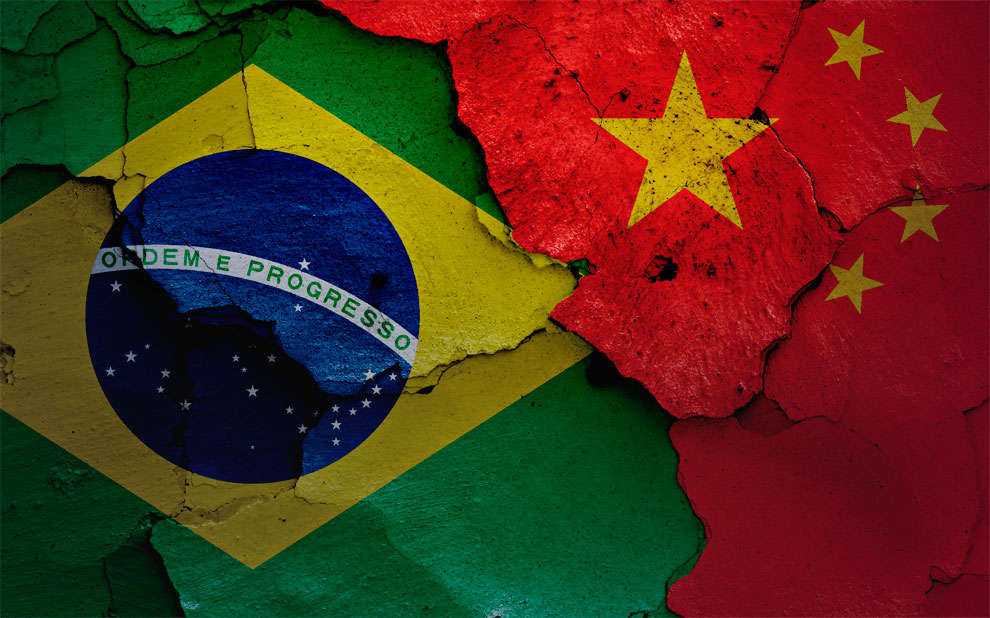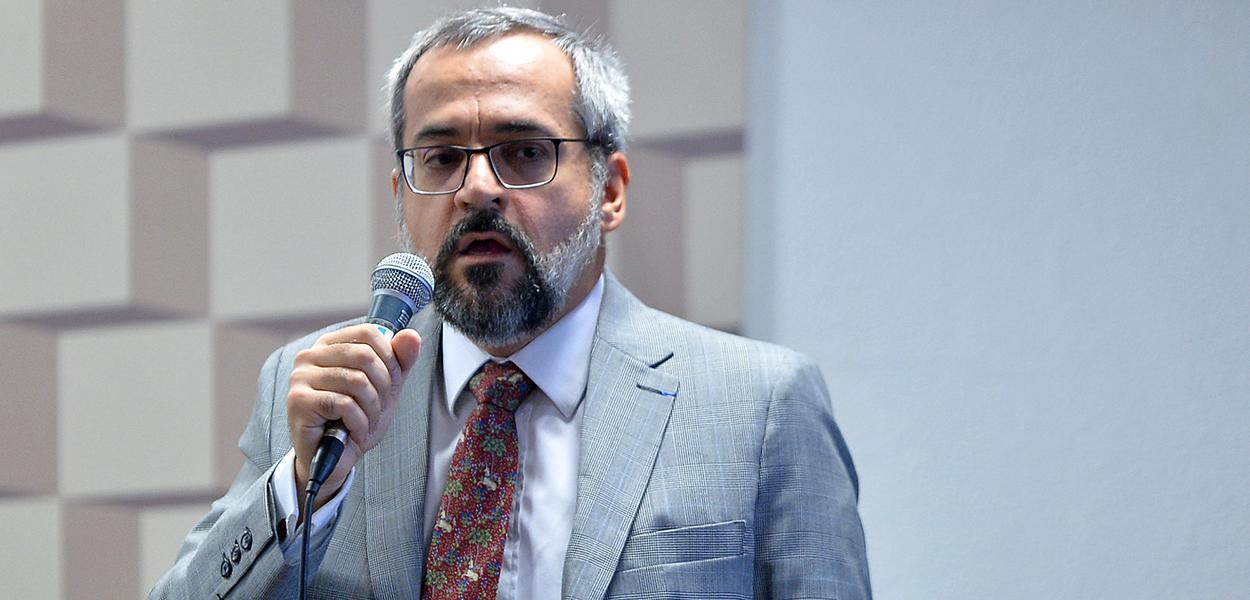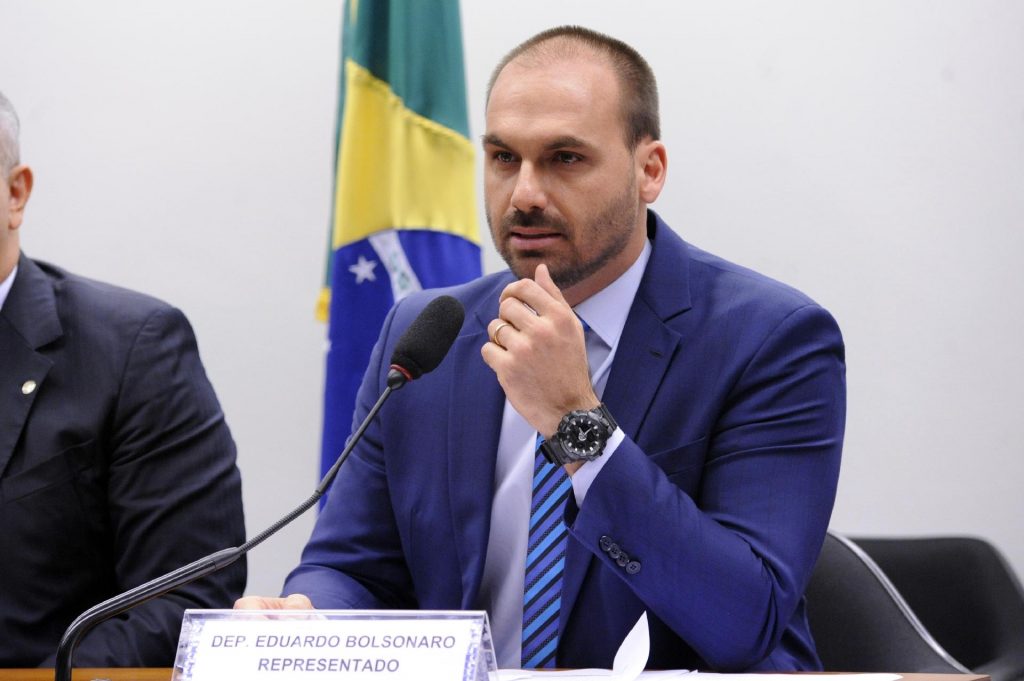RIO DE JANEIRO, BRAZIL – The diplomatic language between Brazil and China has taken on an unprecedented harsh tone, despite the privileged status of the Asian country as Brazil’s main trading partner.

At a time when the world began to depend on the Chinese to acquire health equipment that defines the life or death of people in the midst of a coronavirus pandemic, the attacks of members of Bolsonaro’s government against the Chinese have gained disproportionate significance.
While Health Minister Henrique Mandetta welcomed the importance of the relationship between the two countries in the fight against Covid-19, other players in Brazil were struggling to appease the damage of a tweet by Education Minister Abraham Weintraub, who publicly insinuated that the Chinese are profiting from the pandemic.
The comment strained the dialogue with the Chinese and caused apprehension among Brazilian companies and governors who negotiate with them and await deliveries of equipment purchased from China to tackle the disease’s advance in the coming weeks.
“Geopolitically, who could come out stlonger? In lelative telms of this global clisis?” [mistakes in original], posted Weintraub last Saturday, April 4th, reproducing a comic strip of ‘Monica’s Class’ that had China as the scenario. The message not only reproduced the way comic character ‘Cebolinha’ speaks — he exchanges Rs for Ls — but also contributes to the prejudiced way some portray the Chinese speak in Brazil.
Weintraub’s tweet marked the second tight spot of President Jair Bolsonaro’s government with China, less than 20 days after the first one, starring Deputy Eduardo Bolsonaro. On March 18th, the president’s son sparked off a loud clash when he shared a comment on social media blaming China for the spread of the coronavirus.
The commotion evolved into a public altercation with the Chinese ambassador, Yang Wanming, on social media, appeased by a call from President Jair Bolsonaro to President Xi Jinping.
In this week’s incident, Weintraub erased the twitter comment, but the discomfort lingered. The embassy again made a public demand for an apology through an open letter on social media, placing Bolsonaro’s government in the spotlight again.
“In the last crisis, hostility was generated, solved by the President. Now, once again. This wears down every relationship,” says Charles Tang, president of the Brazil China Chamber of Commerce, which has been working for 30 years to build ties between the two countries. “There will come a time when putting out a fire becomes more difficult,” he says.
The fire does not reach the point of burning today’s close ties between Brazil and China, whose commercial transactions exceeded US$65 billion (R$325 billion) in 2019 [including Hong Kong and Macao].
In the first quarter of this year, at least 25 percent of Brazil’s exports, from soybeans to oil, went to the Chinese market – twice as much as to the United States. But the wear and tear recorded by these unwise attacks by members of Bolsonaro’s government could ultimately contaminate trade.

“China is in position to ask for discounts on purchases from Brazil as an apology,” says José Antônio Castro, president of the Brazilian Exporters Association. “Under no circumstances [do these attacks] help Brazil. An unprovoked attack, nothing more,” he says.
Castro says Brazil is one of the largest producers of soybeans, along with the United States, whereas China is the world’s largest buyer of the commodity. Last year, Americans and Chinese signed a trade war truce encouraged by President Donald Trump, which led to a US$200 billion deal that benefited the purchase of soybeans from the United States.
There has been no damage to Brazil for the time being, but even if the country does not lose, it does not win either. According to Charles Tang, China will continue to be a heavy buyer in Brazil, but even if it will not buy less, it runs the risk of “no longer increasing the purchase”.
It is a bad omen for a world expecting a post-pandemic economic recession or depression, when every point earned in the commercial chess will be worth gold.
In the short term, however, there are no effects and Brazil benefits from a Chinese rebound after the impact that the pandemic had in that country. According to Larissa Waschholz, who answers for the China nucleus at the Ministry of Agriculture, the Asian giant has begun to demand more products from Brazil and this is already felt in March’s exports.
“When we think about the post-crisis period, we have in China a major partner for recovery,” she says.
Her optimism, however, contrasts with the apprehension of other players in the sector, who are concerned about the symbols China values in trade relations, as the Chinese embassy’s note after the education minister’s taunt showed.
“Such statements are utterly absurd and despicable, [they] have a deeply racist slant and unspeakable aims, having caused negative influences on the healthy development of China-Brazil bilateral relations,” it says in a note.
The words of the embassy sound stronger in pandemic times, when the Chinese concentrate 95 percent of medical equipment exports, as Health Minister Mandetta recently stressed.
In Pará, Governor Helder Barbalho paid R$48 million for 400 sets of Intensive Care Units (ICUs), among them artificial ventilators, to be installed in at least four hospitals in strategic regions. The equipment is expected to be shipped from China on April 15th.

The climate is of expectation among the local officials. “So far we have not had any negative signals,” the governor said.
Late last week, nine Northeastern governors who had ordered 600 ventilators for coronavirus victims felt the full impact of the fierce competition for equipment that China is selling.
The ventilators ended up stranded on a stopover in Miami, United States. The cost of the order was R$42 million, but the money was never paid. The suspicion among Northeastern governors is that the cargo was offered at a higher price to the United States, which is at a more serious stage of the pandemic, and also has greater resources to pay than local governments in Brazil.
Piauí Governor Wellington Dias also continues to await 300,000 test kits purchased from a Chinese company at a cost of R$20 million. Dias follows the public managers’ path in the face of the pandemic.
Since the beginning of the crisis in Brazil in February, Piauí, a state with 3.2 million inhabitants, has only tested approximately 800 suspected patients. Data from the Ministry of Health show that they had 31 confirmed cases and five deaths as a result of Covid-19.
Charles Tang, of the Brazil China Chamber of Commerce and Industry, recalls that the Chinese are helping 82 countries, not only with equipment, but also with experience in controlling the consequences of the pandemic. “They have already sent medical personnel to Italy, Venezuela, and Spain, and are helping the US government,” he says.
“Brazil should more intelligently prove the friendship between the two countries and count on Chinese solidarity. Even the United States is doing this,” adds Tang.
But solidarity signals have already been given. On Tuesday, infectologists from 12 states and the Ministry of Health took part in a videoconference to discuss procedures for treating patients. The meeting was mediated by the Chinese Embassy and by Health Minister Luiz Henrique Mandetta.
There were also donations from Chinese technology giant Huawei to the Federal District government last month. There were 12,000 surgical masks and software that has been used to speed up the analysis of CT scans.
“With this software you can have the result of a tomography in two minutes, an exam that helps to determine the severity of the disease,” said Renata Zuquim, head of the Federal District’s International Affairs office.
Source: El País

